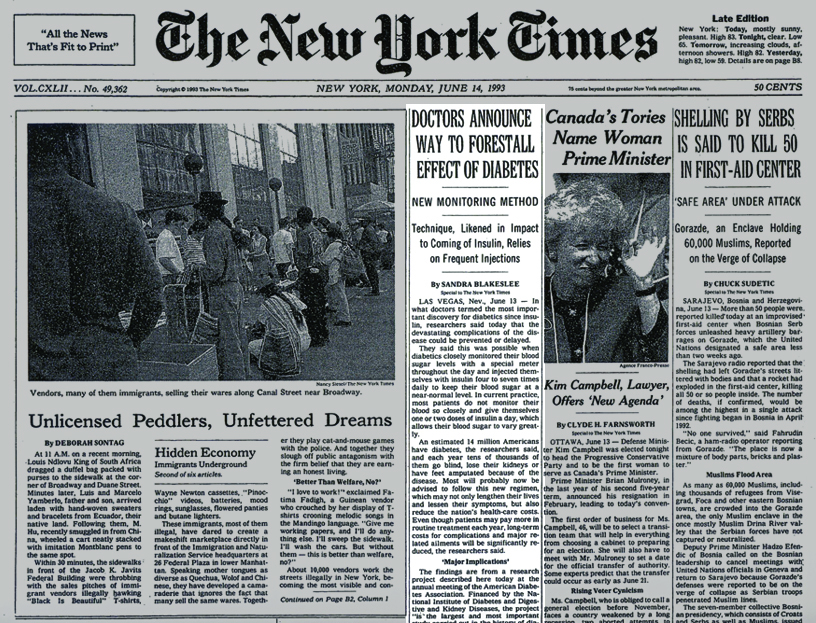
On June 14, 1993, results of the landmark clinical trial made the front page of the
New York Times. The
Times called the findings “the most important discovery for diabetics since insulin.” Since then, those findings have helped thousands of people with type 1 diabetes lead longer, healthier lives.
The Diabetes Control and Complications Trial (DCCT) had followed 1,441 patients with type 1 diabetes for an average of 6.5 years. It was designed to answer a key question: Could intensive insulin therapy to maintain blood glucose levels close to normal reduce the frequency and severity of complications? Einstein helped provide the answer—a resounding “yes.”

Harry Shamoon, M.D., leader of the DCCT at Einstein, with directors from other centers
Einstein was one of 29 centers nationwide that conducted the DCCT. The
Times article featured Christopher Sabin, one of the Einstein research volunteers, and quoted
Harry Shamoon, M.D., leader of the DCCT at Einstein, who is pictured at left with DCCT directors from the other centers. Dr. Shamoon is now associate dean for clinical and translational research, director of the Harold and Muriel Block
Institute for Clinical and Translational Research at
Einstein and
Montefiore and professor of
medicine (endocrinology).


